If there ever was a year in recent history that was truly unforgettable, 2020 is it. This year has been a wild ride for everyone around the globe, as the coronavirus pandemic has changed life as we know it.
Very rarely can one event unite people from across different cultures and backgrounds and seemingly create one collective experience, defined by lockdowns, masks, social distancing, and no clear vision of what the future might hold.
In Palestine, like many other countries, life has continued on despite the pandemic. COVID-19 did not stop the occupation, and in many cases exacerbated the devastating effects of 53 years under Israeli military rule. Palestinians continued to face regional and global threats to their sovereignty and right to self determination throughout 2020, as the Trump administration continued to wreak havoc on the Palestinian cause, in keeping with the past four years of pro-Israel policies and strategy.
It’s hard to remember life before the coronavirus, especially since the end of the pandemic still seems so far away. But as we look back on 2020, we are quickly reminded of all that has happened this year, and what the impact of those moments and decisions are going to be for the upcoming year.
On top of the pandemic, we witnessed major shifts in global politics with widespread regional normalization, and the defeat of US President Donald Trump in November’s election. Global movements for justice like Black Lives Matter, and the fight for justice in Palestine continued to transcend borders, thrusting marginalized voices into the mainstream in ways that were once unimaginable.
An unfortunate constant of this year, as has been the case for the past decade. Palestinian leaders have continued to disappoint their people at every turn, failing to enact any form of real change or progress on the front of national liberation, opting instead to sacrifice true justice and equality in favor of appeasing to the international community, and the incoming American administration. All the while Palestinian citizens have been left to continue defending themselves against the Israeli occupation, that is currently 53 years strong, and shows no signs of stopping any time soon.
Deal of the Century
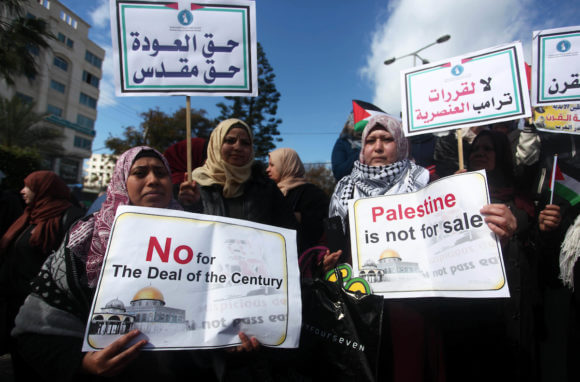
It’s hard to believe that the “Deal of the Century”, something that has impacted the Palestinian issue in every way, was only released just this year, in January 2020. The US Trump administration unveiled the long awaited “peace plan” to fanfare from Israel and Zionists across the globe, and sparked widespread outrage amongst Palestinians and their supporters.
The plan was described by Palestinians as a “gift to Israel”, as Trump’s vision would see Israel retaining control of Jerusalem — the city that Palestinians maintain must be the capital of their future state — Israeli annexation of the Jordan Valley, hundreds of settlements deep in the West Bank, and large swaths of land spanning across the territory. It further fragments East Jerusalem, the West Bank,and the Gaza Strip from one another, and does nothing to address the 13-year-long air, land, and sea blockade on Gaza.
Palestinian scholars and critics described the deal as paving the way for the irreversible division of the West Bank, a perpetual Israeli occupation, and the creation of Palestinian bantustans where Palestinians have limited autonomy but no self determination. It would further entrench a system already deeply rooted in Apartheid and discrimination, and spell the end of any hope of Palestinian statehood.
Annexation
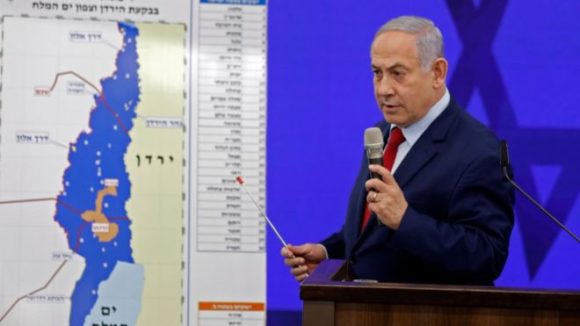
In the first few months of 2020, the biggest topic on everyone’s mind, both in Israel and Palestine, was annexation — the process of applying Israeli sovereignty over large areas of the occupied West Bank. Annexation has been a goal of the Israeli right-wing for years, and was finally and officially put on the table with the release of Trump’s peace plan. Leading up to the third consecutive Israeli election in March, Israeli Prime Minister Benjamin Netanyahu began touting annexation as an effort to curb more support amongst his right-wing and settler base.
If he won the election, Netanyahu vowed, July 1st would be the date Israel finally annexed the settlements and the Jordan Valley — one of the most fertile pieces of land in the West Bank, with vast water reserves, and an area that accounts for nearly a third of the whole territory. But when July 1st came, the announcement that annexation had gone through, never came. That did not mean, however, that Israeli policies in the West Bank working towards annexation had stopped.
In the weeks leading up to and following July 1st, Palestinian activists documented widespread abuses of the Israeli occupation in the Jordan Valley, as entire Palestinian communities were threatened with demolition and expulsion. Israeli settlers were emboldened by the promises of Israeli sovereignty in the West Bank, and launched a series of campaigns across the territory in an effort to seize more Palestinian land, and terrorize Palestinian communities.
Palestinians say that while formal annexation was not recognized on July 1st, the systems of apartheid and “de facto annexation” have already existed in the West Bank for decades. Despite being subject to Israeli rule, millions of Palestinians do not enjoy basic civil rights like citizenship or voting rights that allow them to participate in the system that controls their lives.
PA severs ties with US & Israel
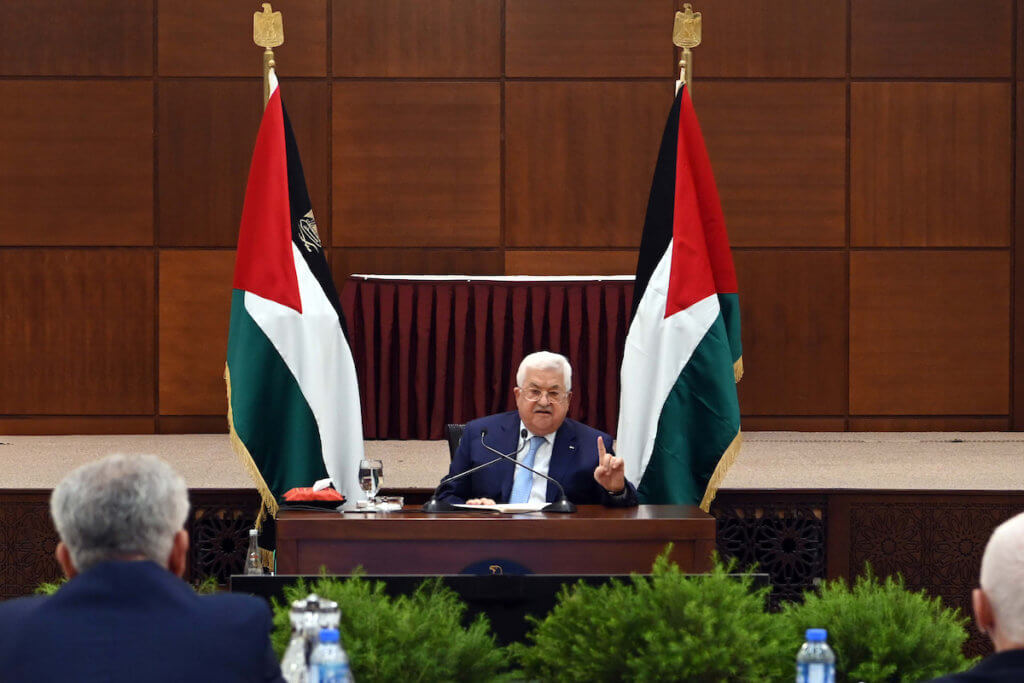
The deal of the century, annexation, and the past few years of destructive policies of the Trump administration culminated with a move that, for many Palestinians, should have been a long time coming. In May, the Palestinian Authority (PA) announced it was officially “suspending all agreements” with Israel and the US — though the PA had been boycotting diplomatic relations with the US since 2017 — and would be “handing over responsibility of the occupied territories back to Israel.”
The declaration came after years of empty threats by President Mahmoud Abbas to end agreements with Israel in protest of its policies in the occupied territories. In 2019, Abbas claimed he ended security coordination with Israel over its demolition campaign in Sur Bahir, though no changes to the controversial policy were made in reality following his announcement.
This time, a few things did seem to change, at least on the surface. The PA removed all of its security forces and police from Areas B and C of the West Bank, and stopped coordinating with Israel on matters like the transfer of patients in Gaza to hospitals in the West Bank. The PA also stopped accepting tax revenues from Israel in protest, spiraling the government further deep into a years-long financial crisis. But despite the minor changes, most Palestinians saw right through Abbas’ bold declaration, saying that if the PA were truly ending all agreements with Israel, including Oslo, it would require an end to the PA itself and the chance for Palestinians to pave a new path forward towards their future. By the end of the year, the PA had already reinstated security coordination citing Israel’s “commitment” to their shared agreements, extinguishing any sort of hope for change.
COVID-19 in Palestine
Every major political moment in Palestine this year was inevitably shaped by the coronavirus pandemic — and vice versa — which first hit Palestine in early March. Though the spread of the virus got off to a slow start in the West Bank and Gaza, by the summer of 2020 it was ravaging communities across the oPt, and has not let up since. Every day the daily rate of infection continues to grow, and the Palestinian healthcare system has suffered severe blows as a result. A system already teetering on collapse due to years of de-development as the result of the occupation, Palestinian hospitals and health infrastructures have struggled to survive under the pressure of the pandemic.
In places like Bethlehem, where the virus first broke out, Palestinians who rely on a tourist economy have suffered massive unemployment and irreversible damage to the city’s businesses and workers. In Gaza, where Palestinians suffer from one of the highest unemployment rates in the world, thousands of families were plunged further into poverty, exacerbated by issues like massive electricity blackouts, lack of clean water, and Israeli bombardments on the territory throughout the pandemic.
Palestinians, like the rest of the world, experienced nationwide lockdowns, mask mandates, unemployment, and massive changes to social ties and the fabric of their communities. But unlike the rest of the world, every day for Palestinians under the pandemic was compounded by the effects of the Israeli occupation. When Palestinians attempted to set up COVID-19 testing centers and clinics in their communities, they were stopped by Israeli forces, who tore down clinics and confiscated materials. Inside Israel and occupied East Jerusalem, Palestinian communities were immediately marginalized at the beginning of the pandemic, as Israeli officials failed to establish adequate testing centers and treatment clinics in their areas.
Despite the pandemic, Israeli forces continued to raid Palestinian communities, arrest and imprison Palestinians, and violently suppress Palestinian protests and demonstrations against the occupation. In refugee camps, overcrowding and crumbling infrastructure made social distancing a nearly impossible feat, resulting in the rapid spread of the virus in those communities. In Area C, Palestinians continued to face home demolitions throughout the pandemic, while Palestinians in the Jordan Valley were forced to battle against the virus and Israel’s threats of expulsion against their communities. By September, Israel had already demolished more than 500 Palestinian homes and structures in the oPt.
While the arrival of the COVID-19 vaccine has marked a turning point for much of the world, including Israel, Palestinians are still stuck in deep waters. Despite being responsible as the occupier for the healthcare of Palestinians in the oPt, Israel has left Palestinians out of their vaccine plan, leaving millions of Palestinians without any clear idea of when they might finally be able to get over the COVID-19 pandemic.
Normalization
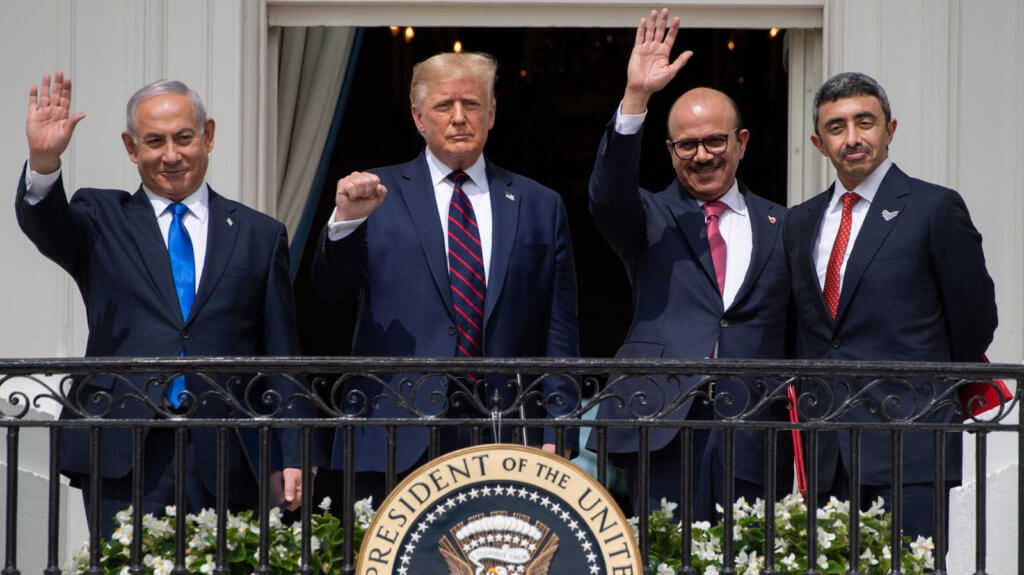
One of the biggest topics that has defined not only Palestine but the entire Middle East in 2020, is Normalization. Over the past few months, we’ve seen a number of Arab nations do the previously unthinkable: officially establish and “normalize” diplomatic, commercial, and cultural relations with Israel. The concept of normalization has long been a contentious one within Arab society, as Arab nations and their people have long agreed that they cannot treat Israel as a “normal” state until it ends the occupation of Palestine, and Palestinians are able to achieve sovereignty and self determination.
All of that changed in August, when the United Arab Emirates (UAE) announced it would be normalizing relations with Israel. The UAE was soon followed by Bahrain, Sudan, and Morocco. The deals were hailed by both Israel and the United States, who orchestrated the agreements (often with significant political, security, and economic benefits for the Arab nations involved). Everything from visa-free travel, telecommunications and security deals, and commercial trade between Israel and its newest friends have been put into motion since the deals were signed, with all signs pointing to even more economic and diplomatic channels to be opened between the countries, and even more of their neighbors, in the near future.
Palestinians have described normalization as a “stab in the back,” and the “ultimate betrayal,” though much of the Palestinian public acknowledge the fact that the deals seemed like along time coming, as many of the countries in question have maintained “under the table” relations with Israel for years. Despite massive protests against normalization in and out of Palestine, Palestinian leadership have maintained a deafening silence in response, and have failed to put forward a real strategy to combat normalization and what it could mean for the future of Palestine.
“What have they done? Nothing,” Diana Buttu told Mondoweiss when speaking on the PA’s response to normalization.”
“There could have been a lot more done, to reach out to the Arab world in general, to explain how this is impacting not just us but them as well. But also to explain to the western world, just what normalization means,” Buttu continued. “And what normalization means, is there is no way to hold Israel to account.”
“The sad thing is, for many Palestinians, especially the youth, there is no agency. There is very little hope for the future,” she said, adding that many Palestinians are being forced to witness the rapidly changing reality to their cause that is happening around them without any real power to change anything, with decades of failed leadership to blame.
The stories that stood out in 2020
Every year, amid the major stories that color our memory of what the year has been like, there are moments that captured the world’s attention, and will continue to impact Palestinian lives and the collective Palestinian story for the years to come.
Lives lost this year
Inevitably, as is the reality of military occupation, every year Palestinians are killed by Israeli forces, men and women of all ages, their names added to the long list of lives lost to the occupation. In 2020, 30 Palestinians, at least five of them children, were killed by Israeli forces in the West Bank and Gaza. There were three cases that shook the Palestinian public, and international onlookers, to their core, and came to define what it means to be a Palestinian under occupation in 2020. Over the summer, two young Palestinian men were gunned down by Israeli forces — Eyad al-Halaq, a 32-year-old from Jerusalem with disabilities was shot and killed while running away from Israeli police, and 28-year-old Ahmad Erekat from the West Bank town of Abu Dis, who was shot by soldiers at a checkpoint on the day of his sister’s wedding. None of the officers involved in al-Halaq’s killing were held accountable for the crime, and Erekat’s body has yet to be returned to his family for burial nearly six months later.
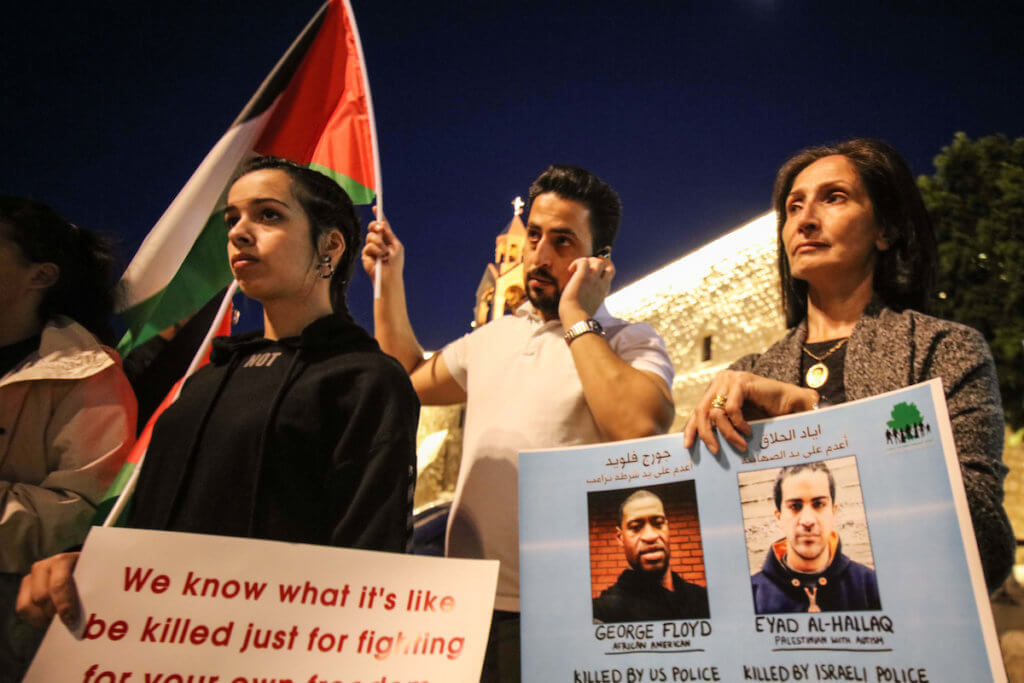
The killing of Erekat and al-Halaq served as a sobering reminder for many Palestinians that under Israeli occupation, doing something so simple like going to school or driving to your sister’s wedding could result in death. Erekat’s death revived calls to end Israel’s practice of detaining the bodies of Palestinians accused of committing attacks on Israelis, while al-Halaq’s murder was widely compared to that of the US police killing of George Floyd, and sparked Black Lives Matter protests and demonstrations in Palestine.
In December this year, Israeli forces killed 15-year-old Ali Abu Alia on his birthday, making him the fifth Palestinian child to be killed by live Israeli fire this year. Abu Alia was shot at the weekly Friday protest in his village of al-Mughayyir. His death sparked outrage across the West Bank, as Palestinians mourned the loss of another young life to the occupation. The outrage surrounding his killing was clouded by a sense of frustration among Palestinians, who know all too well that justice for the victims of Israel’s occupation, even innocent children, is rarely ever achieved.
Home Demolitions, Settlement expansion on the rise
Despite the COVID-19 pandemic, Israeli authorities continued to enforce their policy of home demolitions in the oPt at alarming rates. According to UN documentation, 2020 saw the highest number of structures targeted with demolition, seizure and confiscation since OCHA began documenting the practice in 2009 — with the exception of 2016. As of the end of November, 776 Palestinian homes and structures had been demolished or confiscated by Israel, resulting in the displacement of 946 Palestinians, including 488 children. The overwhelming majority of demolitions took place in Area C of the West Bank and in East Jerusalem, under the pretext that they were built without Israeli-issued building permits, which for Palestinians living in the oPt are nearly impossible to obtain.
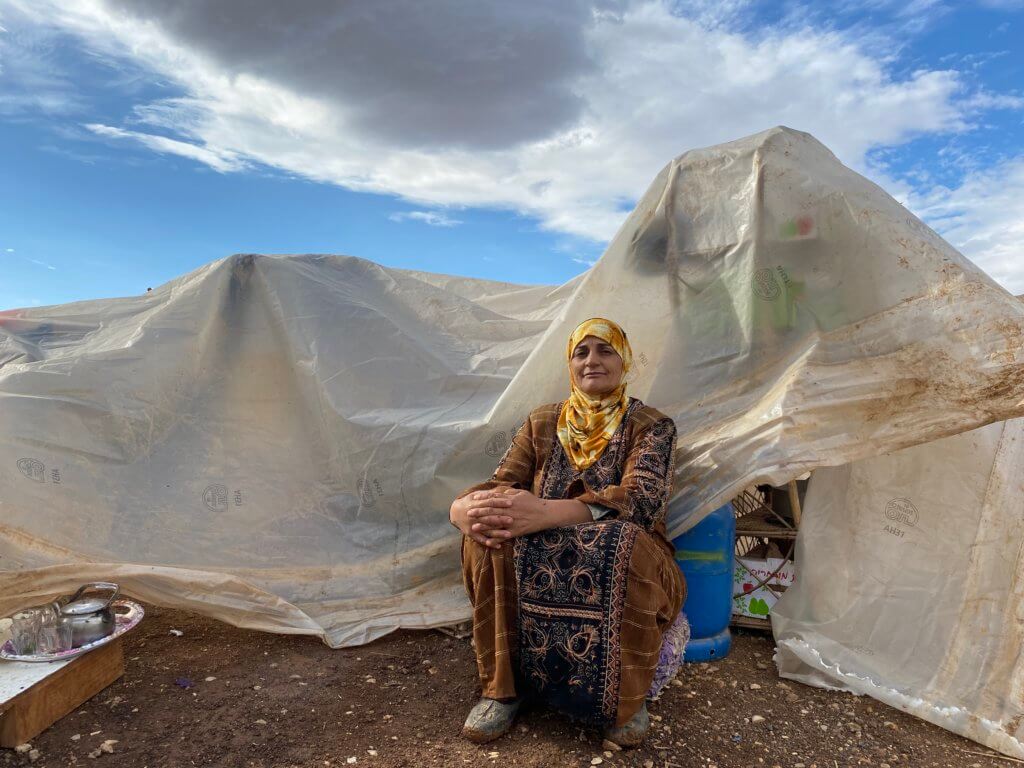
In one of the most shocking demolition campaigns in recent years, Israeli forces razed an entire Palestinian community to the ground in November, on the eve of the 2020 elections. Khirbet Humsah, a Bedouin hamlet in the northern Jordan Valley, was home to some 70 Palestinians, more than 40 of them children. In one night, just as winter was beginning to set in in the West Bank, the 11 families of the enclave became homeless, after Israel destroyed more than 90 structures in the area. The community was essentially wiped off the map, sparking local and international outrage from supporters of the Palestinian cause — though no definitive action was taken against Israel by donor countries like the EU (whose very own structures, such as donated portable toilets and solar panels, were destroyed in the campaign) to hold the state accountable for the offense.
All the while, Israel continued to promote and approve illegal settlement construction in the occupied West Bank and East Jerusalem, with at least 11,000 new settlement units being greenlighted for construction and development this year. According to settlement watchdog group Peace Now, one of the major factors that has lended to such prosperity for the settlement movement, is the policies of the Trump administration. The group estimates that under Trump’s influence and power, the number of plans promoted in the settlements increased 2.5 times during 2017-2020, compared to the previous four years.
The US election and what it means for Palestine
As 2020 came to a close, Palestinians joined the rest of the world in setting their sights on the US elections. After four years of disastrous policies from the Trump administration (e.g. defunding UNRWA, recognizing Jerusalem as Israel’s capital, green-lighting annexation, etc.), Palestinians were ready for a change. And while the election of Joe Biden to the presidency has been celebrated by many Americans as an end to the disasters of the Trump era, many Palestinians recognize that Biden’s explicit pro-Israel stance is unlikely to yield particularly promising outcomes for the Palestinian cause.
After the election, Palestinians told Mondoweiss that “Biden is going to return us [Palestinians] back to the days of Obama, where the US maintained the facade of being an honest peace broker, but in reality was still supporting fully Israel and the Zionist agenda.”
The sentiment that Palestinians are going to see a return to the days of being subjected to the “facade” of America as an honest peace broker have only been confirmed by the leadership’s response to the Biden administration’s win: attempts to get back in Washington D.C’s good graces, reinstating security coordination with Israel and accepting millions of dollars in tax revenues as a result, and the PA’s reassurances that under Biden, things were somehow going to change — despite doing things exactly the same way they have been for years.
When asked what she thought the next few years in Palestine under the PA and the Biden administration might look like, Diana Buttu told Mondoweiss that “the combination of normalization and the lack of a responsible government to actually address this and create a strategy for liberation is leading to our extinguishment. This is the part that is so terrifying to me is that we as Palestinians are being relegated to just a simple minority rather than being the indigenous people of this land.”
 RSS Feed
RSS Feed















 December 31st, 2020
December 31st, 2020  Awake Goy
Awake Goy  Posted in
Posted in  Tags:
Tags: 













